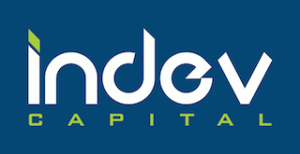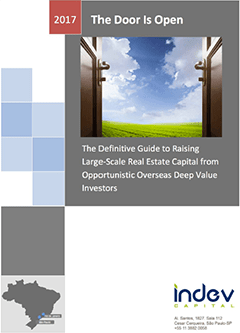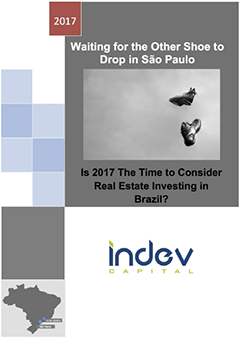Free Enterprise in Emerging Markets, a Philosophical Discussion Among Friends.

A Happy Landing
We begin our journey today 30,000 feet above the Atlantic Ocean. In 2013, I was on a flight from São Paulo to NYC. At 30,000 feet up in the air, the airplane had passed over Venezuela when the pilot said what you never want to hear, “We have a small emergency and will be turning around to land.” There is no such thing, at least in my mind, as a small emergency when you are 30,000 feet in the air over the ocean.
Surprisingly, different from what I would have expected in this environment, the passengers reacted in a way that was nothing like the movies. No screams, no chatter, just pure silence as everyone thought about their lives, the situation, remained calm, and prepared for what was next. There was complete and total focus as passengers listened to see if the pilot had any other updates. As the plane turned around and we started seeing the lights of Caracas, Venezuela, people got excited and the silence turned to chatter. I was extremely happy to land in Caracas. As the airline did not have a hub or planes there, we were there for a couple of days waiting for a plane to get there to pick us up.
When you hear “small emergency” 30,000 feet in the air, any landing is a happy landing.

Image: Hugo Chaves (1)
My time there, July 2013, was about three or four months after Hugo Chavez passed away, and his picture was EVERYWHERE. It was like nothing I had ever seen. As we got to our hotel, extremely nice by the way, and I talked to people about their feelings on Chavez and the Venezuelan political situation, I could feel the intense political tension that existed even four years ago. President Maduro had won a special election with 50.62% of the vote in April of that year. It was a country I decided I would follow, as obviously there were some very diverging viewpoints on the country’s direction.
The Dollar or The Bullet – Francisco D’Aconia’s “The Money Speech”

“So long as men live together on earth and need means to deal with one another–their only substitute, if they abandon money, is the muzzle of a gun.” Francisco D’Aconia’s money speech in Atlas Shrugged. For full text, please click here.
Flash forward to January 2017 here in São Paulo. I was with an entrepreneur who was a native of Venezuela but had moved to Brazil. As I talked to him, I learned that his entire family was now in based in various locations around the world running several businesses and having started several entrepreneurial ventures. His family, obviously a successful family in business in Venezuela before Chavez, realized fairly early that things were going in the wrong direction. They “checked out” and decided it was not worth the risk of building or running a company in an environment that was not supportive and was in fact hostile to their efforts.
As he described the situation on the ground in Venezuela, it reminded me of parts of the book Atlas Shrugged. I told him that I felt, from my conversations during my brief time there, that Venezuela likely had no choice but to return to some type of laissez-faire capitalist system or evolve into the government controlling the population by violence. I remembered the money speech in Atlas Shrugged and told him, “From what you are telling me, there are only two choices: the bullet or the dollar.”
A WhatsApp from My Mother-In-Law
As you know, Venezuela is likely on a clear path to a civil war. Without a radical change in oil prices or support from a foreign power, the country may collapse on itself. All the creative minds are going on strike AND the government believes that it can manage the economy out of this situation.
This weekend my Spanish mother-in-law, who lives in the Canary Islands where there is a history of emigration to Venezuela, sent me pictures and videos from contacts of her friends with relatives in Venezuela. It is clear that Venezuela has evolved into exactly that: a choice between a free market economy (the dollar) or tyranny, dictatorship and control by force (the bullet).
With no solid economy besides oil, due to Chavez’s policies and the “creative minds” going on strike, the government has literally decided to try to take control of the economy and rule by force. It is sad and shocking. For an example of the chaos there and the beginnings of a police state, please see this video with caution.
Is this our only choice? “The dollar or the bullet?” If so, why?
Purpose of This Newsletter
This newsletter’s purpose is to have a brutally honest conversation about free enterprise and its morality in places with significant inequality. We will focus on free enterprise from an emerging market perspective, or at least as much of an emerging market perspective as an American Expat from the great state of North Carolina that has lived in an emerging market economy for almost seven years can provide. We will review some implicit and explicit factors that build the trust necessary for free enterprise to flourish. We will briefly discuss how on God’s green earth a billionaire Republican candidate for US President won on a “populist platform” and what this means, and finally we will discuss a three letter word, JOB, that no one chooses to define.
In a subsequent newsletter, we will step into São Paulo and Brazil for a case study of free enterprise in an emerging market. OK, go grab that cup of coffee, and let’s get started. By the way, “Who is John Galt?”
Atlas Shrugged
Atlas Shrugged is a 1957 novel by Ayn Rand. It was her fourth and last novel and is considered by many to be the magnum opus in regards to quality fiction writing. The origin of the book came from a conversation the author had with a friend. By the time the conversation happened, Rand was already famous with her book The Fountainhead, a very good read as well by the way. Her friend said to her, “You owe it to your readers to write a novel about your philosophy.” To which she replied, “What if I went on strike? What if all the creative minds (artists, business leaders, entrepreneurs, scientists, engineers, researchers, etc.) in the world went on strike?” Remember from above that successful family from Venezuela that “checked out?” These creative minds went on strike in Venezuela.
The Plot of Atlas Shrugged
Atlas Shrugged depicts the United States in the early 20th century and the government has ramped up regulation, decided who is to profit, what products will be successful regardless of their inherent quality, and works proactively to drastically limit the rewards of the “animal spirits” of free enterprise. Due to these aggressive regulations, industries start to collapse, which causes even greater government intervention.
Eventually, the remaining “creative minds” and industry leaders start vanishing. The companies they lead, the biggest in the country, all fail. The book walks through what happens if the government tries to take over and the creative minds decide to check out or go on strike. It is not pretty…

Laissez-Faire Economics
Laissez-faire means “leave alone” in French. The core of this philosophy is that government leaves people alone regarding all economic activities. At its core, it is a separation of the economy and the state. It believes that economies and business function best when there is no interference by the government. This is one of the guiding principles of a free market economy. So far (and I know that a particular Canadian friend in Toronto will literally scream from her faculty building at my saying this) free market enterprise appears to provide the best incentives to create wealth and improve people’s lives, as compared to other economic systems.
Quick Visit to Beijing
Even China’s growth since introducing Deng Xiaoping’s economic reforms in 1978 can be tied directly to its effort to create a Chinese version of a “free market” economy. In fact, Deng’s relaxed state control, starting in Shenzhen and Guangzhou, unleashed perhaps the greatest spurt of economic growth in mankind’s history. However, China famously retains control over its economy and refers to its model as a “market economy with Chinese characteristics.” The current model of import foreign capital, supply low-cost peasant labor, export goods, plow export earnings into infrastructure and political white elephants has likely run its course. The only way to achieve desired growth rates going forward is for government to provide more economic freedom to its entrepreneurs and to stop shovelling so many resources to state-owned enterprises in old heavy industries. The Chinese government’s fear is that this loss of control could threaten its grip on power. This dilemma can be described by a quote by Thomas Jefferson, said in a different context but still useful, “We have the wolf by the ears and we can neither hold him nor safely let him go.”
I would like to thank J.P. from my Section E at HBS for his inputs on this portion of the newsletter. J.P. lived and worked as an executive in China for several years, is a great guy, and a very close friend. We Americans that have business experience in emerging markets have to stick together 🙂
Free enterprise is not perfect and it does create inequality. Sometimes significantly so. At its best, it provides equal opportunity but never equal outcomes. It functions in a better form when the environment is structured for anyone to have the chance to succeed. This environment of equal opportunities is less likely to exist in emerging market economies. How do we come to grips with free enterprise in emerging markets? In many emerging markets, you will occasionally see a mother with a small baby begging on the street, it is still hard for me. If you are not used to seeing this type of situation, you may find yourself asking… is this system fair? “But for the grace of God, Go I”
“The inherent vice of capitalism is unequal sharing of blessings. The inherent vice of socialism is the equal sharing of miseries.” Winston Churchill
Thoughts on Free Enterprise – The Five “E’s”
 As most of us do, I think that my dad was just the best. He was one of the most optimistic, funny, and well read guys I have ever known. Before the internet, people would go to a place called a newsstand and purchase newspapers and talk about current events. My dad was one of those people who would literally purchase five newspapers and read through them on a Sunday. Reading the New York Times, Washington Post, Chicago Tribune, LA Times, and the Raleigh News and Observer was his Sunday ritual. My parents’ biggest fights were about all the books and newspapers around the house. The biggest argument I have ever had with my wife, so far, was about buying a book and not telling her, as she has banned new books until I finish reading the ones I already have. Some things never change.
As most of us do, I think that my dad was just the best. He was one of the most optimistic, funny, and well read guys I have ever known. Before the internet, people would go to a place called a newsstand and purchase newspapers and talk about current events. My dad was one of those people who would literally purchase five newspapers and read through them on a Sunday. Reading the New York Times, Washington Post, Chicago Tribune, LA Times, and the Raleigh News and Observer was his Sunday ritual. My parents’ biggest fights were about all the books and newspapers around the house. The biggest argument I have ever had with my wife, so far, was about buying a book and not telling her, as she has banned new books until I finish reading the ones I already have. Some things never change.
My dad had a theory called the 5 E’s. This theory could provide a snapshot of a country, a city, a family, or the opportunities of a child. He believed that a solid Education, a positive and encouraging Environment, Equality under the law, Economics such that basics and some useful luxuries were taken care of, and Exposure to the world and its opportunities were the key things that provide a glimpse into a society, a community, or a person. Importantly, for a free market economy to work, it must have strong independent institutions (Environment) and rule of law (Equality).
However, the gaps in the 5 E’s in emerging markets can be quite severe. Educational gaps are tremendous, the living Environment of people is radically different, Equality under the law is sketchy at best (money tends to provide privilege under the law in emerging market societies), Economic and income inequality is significant, and Exposure for some members of society is extremely limited to their own way of living. So can free enterprise function in these environments? Can it thrive?
What makes certain intellectual “elites” so uneasy about Free Enterprise? Does this nervousness turn to populism?

A lifetime ago, I was competing for several college scholarships. There was another person in the same town of Durham who was competing for the same scholarships. The other student went to a public school and was “the rock star” there and I was, I guess, a mild form of “a rock star” (note the significant difference between “the” and “a”) in the city’s main private school. Besides those facts, we were almost the same on paper. To be clear, my parents at times had a paper route and all sorts of methods to pay the private school tuition, so I was not a scholarship kid at the school. Nor were we rich, but my parents just made it a priority to send me to this school.
Anyway, I remember in interviews for the scholarship I was very direct about my ambition to be an entrepreneur, my strong belief in free enterprise, and I was likely, to the interviewers’ utter shock, the only kid of high pigmentation that had anything positive to say about Ronald Reagan. I received no scholarships. Now, this was not because I was a bad person or the other competitor was undeserving, but I’ll never forget how uncomfortable one certain lady was hearing my answers to questions.
I was clue free (this is an advanced form of cluelessness), but I somehow was not saying what was supposed to be said from someone like me. I am sure that this lady has passed away, but in the great beyond I hope to ask her what really bothered her about my answer. But My Long Ago Interviewer, what are the other options? If free enterprise is bad for a solidly middle-class high pigmentation kid in North Carolina in 1988, it must still be bad for emerging markets. Correct? Am I missing something?
This “punt” on really explaining the alternatives to free enterprise and importantly applying other models such as socialism, its results, and its reality which functions opposite to the way actual humans behave in real life, in the author’s opinion, leads to dangerous populist waves and big government ideas. During those populist waves, these “intellectuals” side with “the people,” whoever that is, and then all start saying things that make no sense. Such as, the government can actually create jobs.. We will cover that in a second.
Populism – Is this the Answer?
To be totally honest, I have recently become very unsure of what exactly a populist is. I know that Bolivia’s President Evo Morales is considered a populist president for expanding indigenous farmers’ rights. It is my understanding from my in-laws in Spain that the Podemos party in Spain is populist through trying to mandate such things as immigrant voting rights. However, when a member of the Forbes 400 runs as a Republican and is called a “Populist,” I became completely confused.
Now, no matter how you feel about President Trump, and I know there are some strong opinions in the readership base, his win was a surprise to many and clearly represents that some people feel very strongly that the US Capitalist system is not working for them. He beat three political establishments: the Clinton, the Bush, and even the recent Obama legacies and power structures. Based on his election victory really hanging on the margin of working class voters in states like Ohio, Wisconsin, and Michigan, it is safe to say that some of those voters liked the Billionaire’s “populist” message. To live on 5th Avenue, crush the establishment of two parties, and run as a billionaire populist! Only in America! Regardless how you feel about him, positive or negative, it was an incredible win.
However, I am scared to death of the concept of a Billionaire Populist, or really any successful Populist…Why? I am quite fearful that the USA’s first billionaire president will allow people to think that government creates jobs. That somehow the “big state,” with infrastructure spending etc., is the solution and that a strongman can cause jobs to go to this location or to stay in the USA by edict. I am afraid he will miss a wonderful opportunity to explain a three letter word. Exactly, what is a “Job”?
What is a Job? Populism’s success is often the result of a failure in basic communication of the word “Job
 Populists always talk about their individual ability to make people’s lives great. “I am a job creator.” “I will run government better and create X thousand jobs.” “They (pick the scapegoat of the day) are taking your jobs away.” “Only I know how to create jobs.” We even see this in the words we use, “The economy created X jobs this month.” “As Governor, he or she, brought this many jobs to the state.” A more modern version of this language is, “I will bring high paying jobs.” And one can run for president and say, “I will be the biggest job creator ever!” But how is an actual job created?
Populists always talk about their individual ability to make people’s lives great. “I am a job creator.” “I will run government better and create X thousand jobs.” “They (pick the scapegoat of the day) are taking your jobs away.” “Only I know how to create jobs.” We even see this in the words we use, “The economy created X jobs this month.” “As Governor, he or she, brought this many jobs to the state.” A more modern version of this language is, “I will bring high paying jobs.” And one can run for president and say, “I will be the biggest job creator ever!” But how is an actual job created?
(By the way, Trump IS doing a good job in carving back some regulatory burden. The one thing government can do is create an environment such that jobs are created by risk-taking individuals or organizations. Trump does not tweet about this, but this regulatory relief is the most important thing that he has done. Importantly with regulatory relief, not to act is as important as to act. The number of proposed rules under consideration has dropped significantly in the new administration. I almost forgot, can someone stop him from Tweeting, or perhaps Tweet this? Please!)
A big problem with free enterprise is that people do not explain the one thing that everyone, particularly that guy in a factory in Ohio or the emerging market equivalent, cares about. What is “a job” and where does it come from? Let’s dig in.
At a micro level, a human being, in a small company or a large company, sees an opportunity. This opportunity is then the recipient of time and / or money, which are both really the same, a valuable resource at risk. If the idea works, the business opportunity starts to generate cash. If the opportunity requires more resources in time or expertise than currently available, another human being is employed to help pursue the opportunity. This person is paid a wage that is below the value that they create. Otherwise there is no reason to hire the person. This is a clear voluntary trade between rational human beings acting in their self interest. This person will continue to be employed as long as the value they bring to the organization is worth more than their costs. A layoff occurs when this trade of time for money no longer makes sense. Therefore, the best way to earn a better wage is to increase your productivity.
Now, I do not want to oversimplify things, but imagine if conversations were had at this basic level by our politicians and even among friends. DJT, use your Twitter account to explain what a job is, big guy!!!!! Avoiding this brutally honest conversation and the corresponding economic education that it includes is dangerous, and this is almost completely absent from many conversations and discourse in capitalist economies that are supposed to lead the world in modeling a capitalist system. I scream in horror every time I hear a politician talk about jobs and not define what actually causes a job to magically appear.
While obvious, as some of my Keynesian economist friends pull up their GMAIL account, the reason the government cannot create jobs in any long-term sustainable way is that the profits to fund the government depend on profit seeking organizations making the free market trade described above. A government job, while a job to the employee, does not have that direct profit generation necessary for the corporate entity to pay taxes. Remember, government spends money. I am sure I will get emails saying that this is incorrect; however, if there is no private economy and no lucky oil under the ground or some other magic, the author does not see a sustainable government job creation program. I do not have President Maduro of Venezuela’s contact information, but see how many jobs he creates without support from some outside foreign party or a radically different oil market.
The Creative Minds
 What do we need to do in the economy to encourage the “creative minds” to take risks that, if successful, will result in opportunities profitable enough to lead to jobs? Obviously, perhaps the greatest global ecosystem of creative minds taking risks is Silicon Valley. How can we talk about productivity in an intelligent way? How can we stop people from saying that governments create jobs? If this newsletter results in a write-in call for me, Joseph Wakefield Williams, to run for President in 2020, my campaign slogan will be “I will create not one single job but do whatever I can to create the environment such that a risk taker will.” Do I get your vote?
What do we need to do in the economy to encourage the “creative minds” to take risks that, if successful, will result in opportunities profitable enough to lead to jobs? Obviously, perhaps the greatest global ecosystem of creative minds taking risks is Silicon Valley. How can we talk about productivity in an intelligent way? How can we stop people from saying that governments create jobs? If this newsletter results in a write-in call for me, Joseph Wakefield Williams, to run for President in 2020, my campaign slogan will be “I will create not one single job but do whatever I can to create the environment such that a risk taker will.” Do I get your vote?
And Now, Who is John Galt?
 John Galt is the protagonist of Atlas Shrugged, who convinces titans of industry to “check out,” go on strike, and to not feed the excessively corrupt and all-powering government system that is set out to destroy them. He leads a strike against an aggressive government system that believes that the creative minds owe the government pretty much everything. John Galt is the defender of free enterprise or, better yet, the “morality of man acting in his rational self interest.”
John Galt is the protagonist of Atlas Shrugged, who convinces titans of industry to “check out,” go on strike, and to not feed the excessively corrupt and all-powering government system that is set out to destroy them. He leads a strike against an aggressive government system that believes that the creative minds owe the government pretty much everything. John Galt is the defender of free enterprise or, better yet, the “morality of man acting in his rational self interest.”
John Galt is important for emerging market investors as it is important to understand the direction of economies, their trends in regards to regulations, and where they are in the wave of populist-driven to capitalist-driven societies. John has told the creative minds of Venezuela that it is time to check out. The lights will go off there quite soon. It is sad…
Follow Up – Brazil, A Case Study in Emerging Market Free Enterprise
 For those interested in a follow-up newsletter to this one, Brazil, A Case Study in Emerging Market Free Enterprise, please let me know via email at joseph.williams@indevcapital.com. I thought it was important to address what is happening in Venezuela in an interesting way as it is a sad state of affairs indeed. However, it is incredibly instructive.
For those interested in a follow-up newsletter to this one, Brazil, A Case Study in Emerging Market Free Enterprise, please let me know via email at joseph.williams@indevcapital.com. I thought it was important to address what is happening in Venezuela in an interesting way as it is a sad state of affairs indeed. However, it is incredibly instructive.
I pray for the people there and I also pray for all of us that believe in free markets to fight everyday to communicate the truth about how the system really works.
Importantly, for those living in Brazil, along with the free enterprise spirit that I see among my friends and our clients, it is just as important to be aware of those 5 E’s that my father talked about. In addition, it is not a bad idea to explain to people that do not live in the bubble in Itaim or Vila Madalena etc. (the islands of prosperity) what a job actually is and how it is created.
The long-term stability of Brazil’s healthy free enterprise system (albeit imperfect) depends on these honest conversations about what a job is and how it is created. John Galt would be proud of you!
Until next time!





